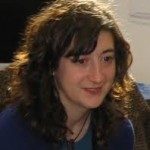Lien vers Pubmed [PMID] – 20174605
Lien DOI – 10.1371/journal.pgen.1000851
PLoS Genet 2010 Feb; 6(2): e1000851
Legionella pneumophila and L. longbeachae are two species of a large genus of bacteria that are ubiquitous in nature. L. pneumophila is mainly found in natural and artificial water circuits while L. longbeachae is mainly present in soil. Under the appropriate conditions both species are human pathogens, capable of causing a severe form of pneumonia termed Legionnaires’ disease. Here we report the sequencing and analysis of four L. longbeachae genomes, one complete genome sequence of L. longbeachae strain NSW150 serogroup (Sg) 1, and three draft genome sequences another belonging to Sg1 and two to Sg2. The genome organization and gene content of the four L. longbeachae genomes are highly conserved, indicating strong pressure for niche adaptation. Analysis and comparison of L. longbeachae strain NSW150 with L. pneumophila revealed common but also unexpected features specific to this pathogen. The interaction with host cells shows distinct features from L. pneumophila, as L. longbeachae possesses a unique repertoire of putative Dot/Icm type IV secretion system substrates, eukaryotic-like and eukaryotic domain proteins, and encodes additional secretion systems. However, analysis of the ability of a dotA mutant of L. longbeachae NSW150 to replicate in the Acanthamoeba castellanii and in a mouse lung infection model showed that the Dot/Icm type IV secretion system is also essential for the virulence of L. longbeachae. In contrast to L. pneumophila, L. longbeachae does not encode flagella, thereby providing a possible explanation for differences in mouse susceptibility to infection between the two pathogens. Furthermore, transcriptome analysis revealed that L. longbeachae has a less pronounced biphasic life cycle as compared to L. pneumophila, and genome analysis and electron microscopy suggested that L. longbeachae is encapsulated. These species-specific differences may account for the different environmental niches and disease epidemiology of these two Legionella species.


